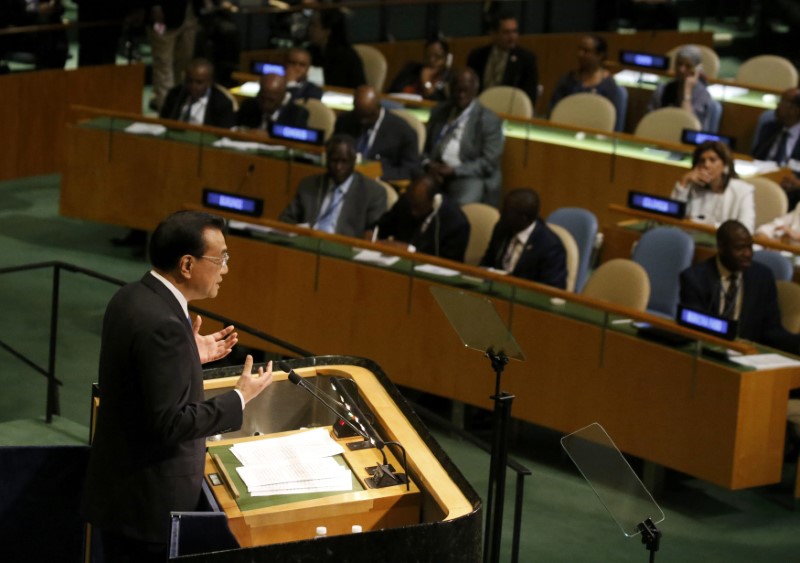BEIJING (Reuters) - China's economy performed better than expected in the third quarter and the country's debt risks are under control, Premier Li Keqiang said on Tuesday.
"China's economy in the third quarter not only extended growth momentum in the first half but showed many positive changes," Li said in the speech in Macau that was broadcast live on state television.
Key indicators such as factory output, company profits and investment have rebounded, he said, ahead of China's release of third-quarter gross domestic product (GDP) data on Oct. 19.
More than 10 million new urban jobs were created in the first nine months, with the survey-based jobless rate falling below 5 percent in September, he said, while acknowledging that the economy still faces downward pressure.
China will be able to achieve its main economic targets this year and maintain medium- to high-speed growth, he said.
The government is aiming for annual economic growth of 6.5-7 percent in 2016, compared with 6.9 percent in 2015, the slowest expansion in a quarter of a century.
Despite a rocky start to the year and stubbornly weak exports, China's economy grew 6.7 percent in the first half, buoyed by higher government infrastructure spending and a housing market frenzy which is beginning to raise fears of overheating. HSBC expects a similar rate of expansion in third quarter.
Li said the government will take effective measures to ensure the stable and healthy development of the property market, and will encourage cities to set their own real estate policies depending on local conditions.
More than a dozen cities and districts have tightened restrictions on property purchases in recent weeks to cool red-hot prices.
Li also said China's debt risks are under control, but added the government will take steps to reduce high debt levels of non-financial firms to help ward off financial risks.
Non-performing loans are rising but the banking sector will be cushioned by ample liquidity and sufficient bad-loan provisions, he said.
S&P Global said on Tuesday that rising debt levels will worsen the credit profiles of China's top 200 companies this year, requiring the country's banks to raise as much as $1.7 trillion in capital by 2020 to cover a likely surge in bad loans.
China unveiled guidelines on Monday to reduce rising corporate debt levels, such as encouraging mergers and acquisitions and debt-for-equity swaps.
Debt has emerged as one of China's biggest challenges, with the country's total debt load rising to 250 percent of gross domestic product {GDP). Policymakers have issued a flurry of comments in recent weeks seeking to reassure domestic and global investors that debt risks are under control.
Li also reaffirmed the government's goal of developing the country's capital markets to help reduce the reliance on bank lending.
